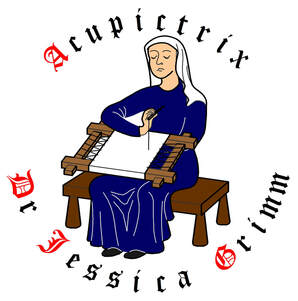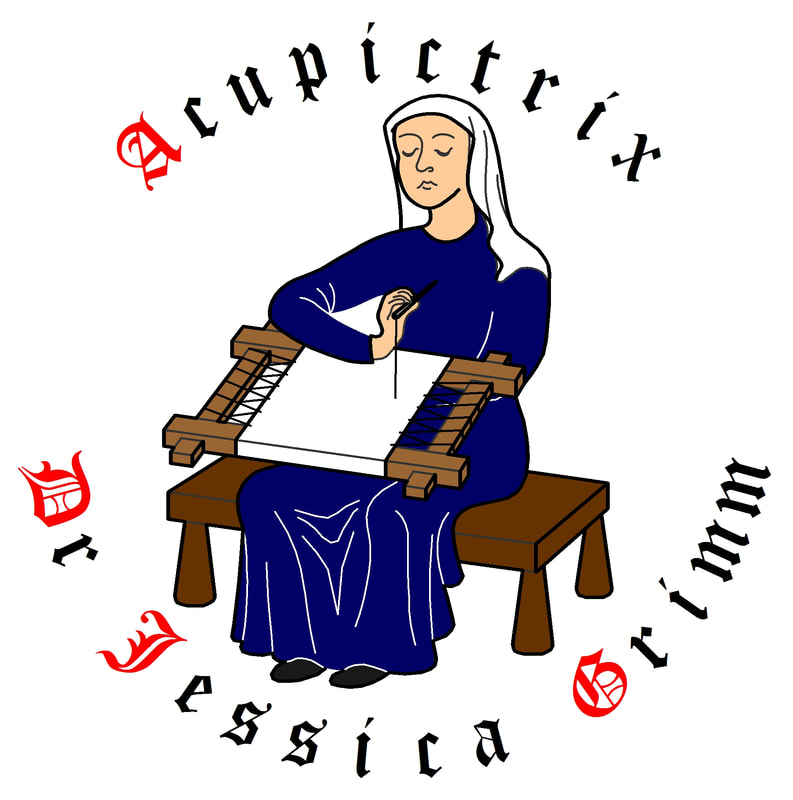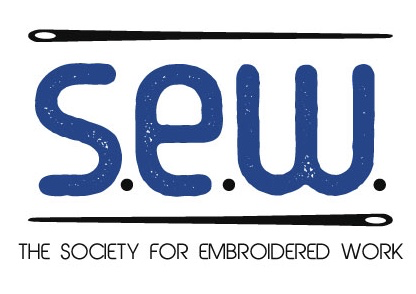|
About 15 years ago, I attended a lecture by Ms H.E.M. Cool. She is the author of the book 'Eating and drinking in Roman Britain'. One of my favourite books on archaeology. But that lecture was nothing I thought it would be. Instead of an overview on small finds related to food and drink in Roman Britain, we got a highly controversial lecture on the stark domination of female archaeologists in small finds. Female domination sounds good, doesn't it? Wrong. It is bad. You see, many female archaeologists end up as a finds specialist. You are in the office instead of in the field and this career path can be combined with raising children, supporting a husband in his career or simply with having a catastrophic period each month. So far, so good. However, we do not live in a perfect world. When a workforce is dominated by women it gets taken less seriously (think elementary school teacher, nurse, etc.). Payment goes down. Fewer men enter as the overall perspective of making promotion diminishes. As a result, the workforce becomes even more 'girly'. Ms Cool spoke to a mainly female audience. Ms Cool was very angry; that sacred kind of angry. Not because she wanted to drag some younger female archaeologists through the mud, but because she cared deeply. Nevertheless, no doubt, some thought of her as a traitor. On me, she made a lasting impression. What does this have to do with medieval embroidery? Read on! Research into historical textiles is dominated by women too. This wasn't always the case. We had Joseph Braun and Louis de Farcy at the end of the 19th and the beginning of the 20th century and Donald King who died in 1998, to name a few. But when more people got an academic education, more women ended up in textile research and fewer men entered the discipline. I don't want to speculate about why so many women ended up in textile research. The 'why' doesn't matter. What matters is that the discipline became female-dominated. And with it, it lost its serious character. Some people, who started out as brilliant researchers on medieval embroidery, switched to studying paintings instead (Saskia de Bodt). Better career opportunities there, no doubt. Academics involved in the recent high-profile research project on the Imperial Vestments were told that 'university isn't a Kindergarten' when they tried to recreate stitch plans. So, what do we do when a discipline such as embroidery research is not being percieved as serious? We make sure that we adhere to academic standards and that we are professional. And here comes the controversy of my plea. If we want to be seen as serious researchers in a mature discipline, we cannot quote: comments from Facebook groups on historical embroidery, generic introductions in embroidery project books, blogs by hobbyists who do not state their references, etc. However right these sources might be. We usually have no means of verifying them. If you cannot verify a source it does not pass academic standards and it should thus not be used. It is perfectly fine to use any of these sources as your starting point for more research. And you should credit them accordingly. Bluntly copying them, even with a proper reference, should be avoided at all times. Does this mean that only academics have a monopoly on proper research? No. Anyone who states his or her sources which then can be verified produces proper research and is thus a totally valid source. Here is another story from the days when I was still an archaeozoologist. When I publicly defended my doctoral thesis, one of my examiners was not an archaeologist, nor a biologist or a veterinarian, instead, he was a historian. And he hated my thesis. Analysing thousands of medieval animal bones from older sub-standard archaeological excavations and then translating the results into a 500-year history of husbandry strategies and trading with animal products does not produce many definitives or truths. Instead, you need to eat humble pie and use the words 'possible', 'probably' and 'might' a lot. Back then, older historians were not used to this. When you work with written sources they surely must be true! What does this have to do with medieval embroidery? Read on! Those who have taken my Medieval Goldwork Course know that research is never finished. Got new evidence? The narrative changes. A 'possible' becomes a 'probable' or the idea is dropped altogether. This resulted in an updated course for the second run and then again an updated course for the third run. And no doubt, things being tested out by the students of the third run will influence any future runs of the course. I am still learning every day about medieval embroidery practice. And I need my students very much to point me to things I haven't thought of myself. But. And this is an important but! All their ideas need to hold up to academic scrutiny. They need to be verified before they can become part of my academic research.
Going to university and being trained to become an academic means that you are being equipped with a set of skills. You could view this as a toolkit. Learning these skills takes time and professionals who teach them to you. Just like with any other occupation people embark on learning. In the case of becoming an academic, learning to verify sources and to validate sources is probably the most important skill they'll teach you. People seem not to be born with this skill. Some people say that we live in a post-truth era. As academics and other experts sometimes err there is no truth and all opinions are equally valid. For instance, the opinion of your barber on vaccination is as valid as your family doctor's opinion on vaccination. Really? Personally, I do not want to live that way. It has prevented humanity so far from taking decisive action to avert climate change and to properly react to the pandemic (a small cog in the machine called climate change). It also massively threatens our democracies. Alternative facts, anyone? It is clear to me that some who read this will see me as an arrogant academic who thinks she is above 'normal embroiderers'. Nothing could be further from the truth. I've set up the Medieval Embroidery Study Group for embroiderers who want to continue their studies in medieval embroidery. Think of it this way: academics theorising about embroidery without ever holding a needle are as daft as hobby researchers who cannot support their claims with proper references. There are now so many textile societies embroiderers can join regardless of their educational background. If you are interested in archaeological recreations try EXARC, if you like medieval textiles join MEDATS and if you like dress history you might want to check out the ADH. Here you have access to cutting edge new research and you are very welcome to contribute your own thoughts (again: they will need to hold up to academic scrutiny). Contrary to Facebook groups, you need to pay a small yearly fee to join these societies. But remember: Facebook's free is costing society an arm and a leg!
19 Comments
meri
17/1/2022 10:07:08
Congratulations for this post, Jessica! Tank you so much
Reply
17/1/2022 10:32:57
Thank you, Meri! These kind of blog posts aren't easy to write, but I believe that they are sometimes necessary.
Reply
meri
18/1/2022 21:16:38
Can imagine(?) your difficulties. You are pretty right this kind of posts are so necessary always! Thanks again.
Mina
17/1/2022 11:55:03
Thank you. One of the most important things I took away from university is the realisation that the more I learned the more aware I became of all the things I didn't (and probably never would) know. It was a very humbling experience.
Reply
17/1/2022 12:08:37
Thank you for your reply, Mina! It is so recognisable, unfortunately. In the beginning, I thought that by pointing out to virus deniers and complot thinkers that virology cannot be learned through Facebook and YouTube, they would back down a bit. Instead, I provided them with articles from the leading medical journals and tried to discuss the problems and results in them with them. This was always way over their head, but they still maintained that their sources were more trustworthy and that their common sense was better than my academic background. Nowadays, I just avoid them.
Reply
Nancy B
17/1/2022 13:21:35
Yes. This. There are reasons why standards in all walks of life are important, and currently there is a battle being fought over who establishes them and on what grounds. There are reasons why these standards are breaking down, and a lot of that has to do with the stories our societies tell about themselves, and what happens when the stories don’t match reality.
Reply
Natalie
17/1/2022 15:52:04
Well written post as usual Jessica. I've spoken with many who have taken your courses and they are really amazed by your work and historical knowledge. You are bringing new energy to this area. Bravo.
Reply
Darcy Walker
17/1/2022 15:11:33
On of the reasons I so enjoyed your Medieval class was the extraordinary research you shared.
Reply
Maryann Witalec Keyes
17/1/2022 15:17:53
You and I are kindred spirits. I live in Princeton, NJ, USA (home of the University) where rigorous academic standards are prevalent. However, the substitution of opinion for fact is becoming the norm in our larger society. We all have opinions and they are valuable; but they must be identified as such and not presented as fact in order to serve a useful purpose.
Reply
17/1/2022 15:37:17
Indeed, Maryann! Admitting that you were wrong isn't en vogue either.
Reply
Linda Hadden
17/1/2022 20:02:03
Jessica,
Reply
17/1/2022 20:44:05
Thank you so much for your raving review, Linda! I too think that we have a fantastic group of people together (and we will get some splendid fresh ones after the third run!) who are really passionate about medieval embroidery. It always amazes me how many new details I discover through the eyes of you all. Thank you very much for being such a lovely fellow-researcher!
Reply
I also do not want to live in a 'post-truth' era. Science is real. Any one individual's experiences and beliefs matter most to that individual: society must take into account the experiences and beliefs of many individuals. Science gives us the tools to test those individual experiences and determine which is nearest the objective truth.
Reply
18/1/2022 08:44:17
I agree, Rachel! Experimental archaeology has contributed so much to the wider field of archaeology. One would wish that art historians do at least a couple of practical courses in painting, wood working, textiles, etc.
Reply
Your comment will be posted after it is approved.
Leave a Reply. |
Want to keep up with my embroidery adventures? Sign up for my weekly Newsletter to get notified of new blogs, courses and workshops!
Liked my blog? Please consider making a donation or becoming a Patron so that I can keep up the good work and my blog ad-free!
Categories
All
Archives
July 2024
|
Contact: info(at)jessicagrimm.com
Copyright Dr Jessica M. Grimm - Mandlweg 3, 82488 Ettal, Deutschland - +49(0)8822 2782219 (Monday, Tuesday, Friday & Saturday 9.00-17.00 CET)
Impressum - Legal Notice - Datenschutzerklärung - Privacy Policy - Webshop ABG - Widerrufsrecht - Disclaimer
Copyright Dr Jessica M. Grimm - Mandlweg 3, 82488 Ettal, Deutschland - +49(0)8822 2782219 (Monday, Tuesday, Friday & Saturday 9.00-17.00 CET)
Impressum - Legal Notice - Datenschutzerklärung - Privacy Policy - Webshop ABG - Widerrufsrecht - Disclaimer






 RSS Feed
RSS Feed